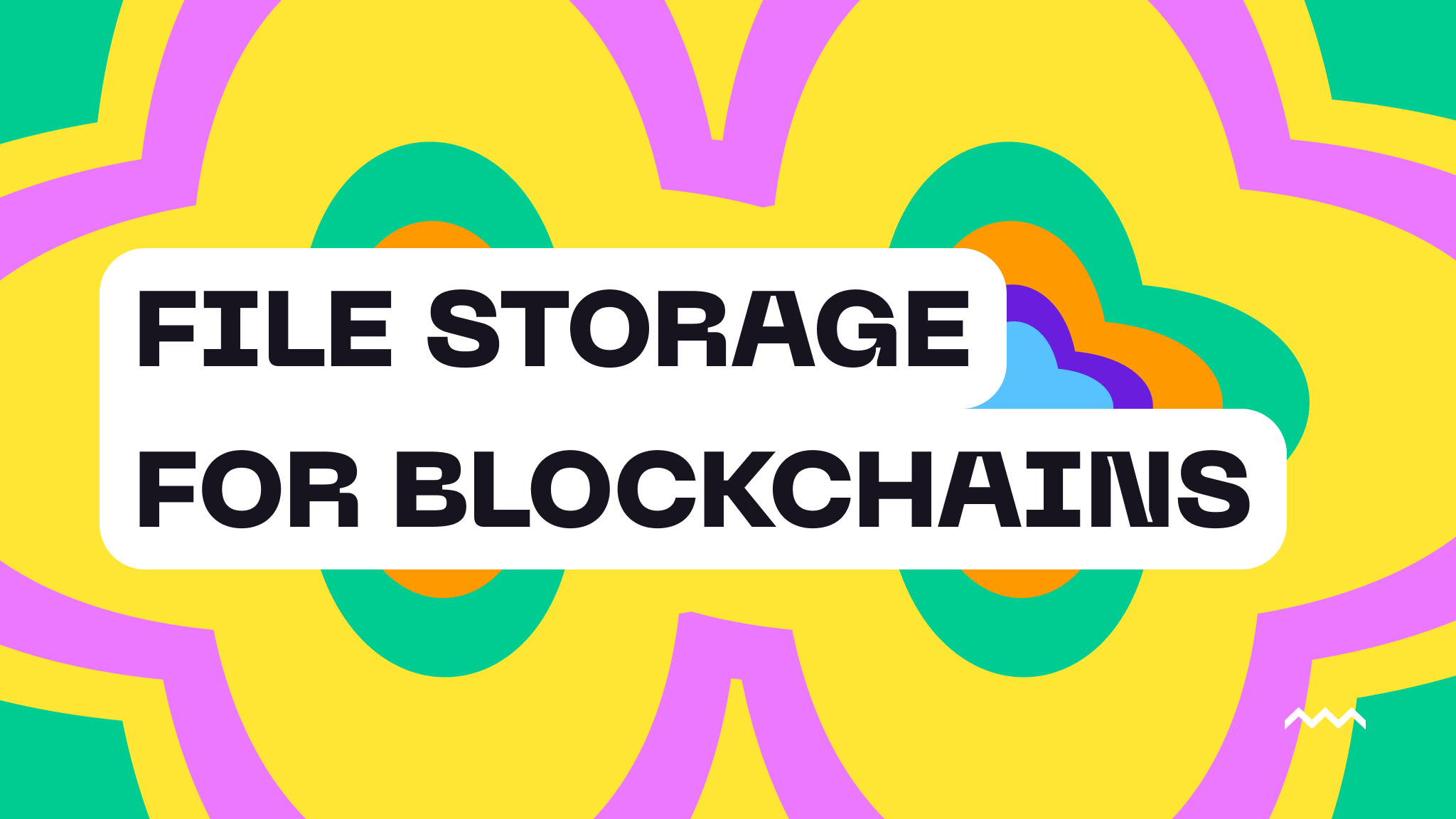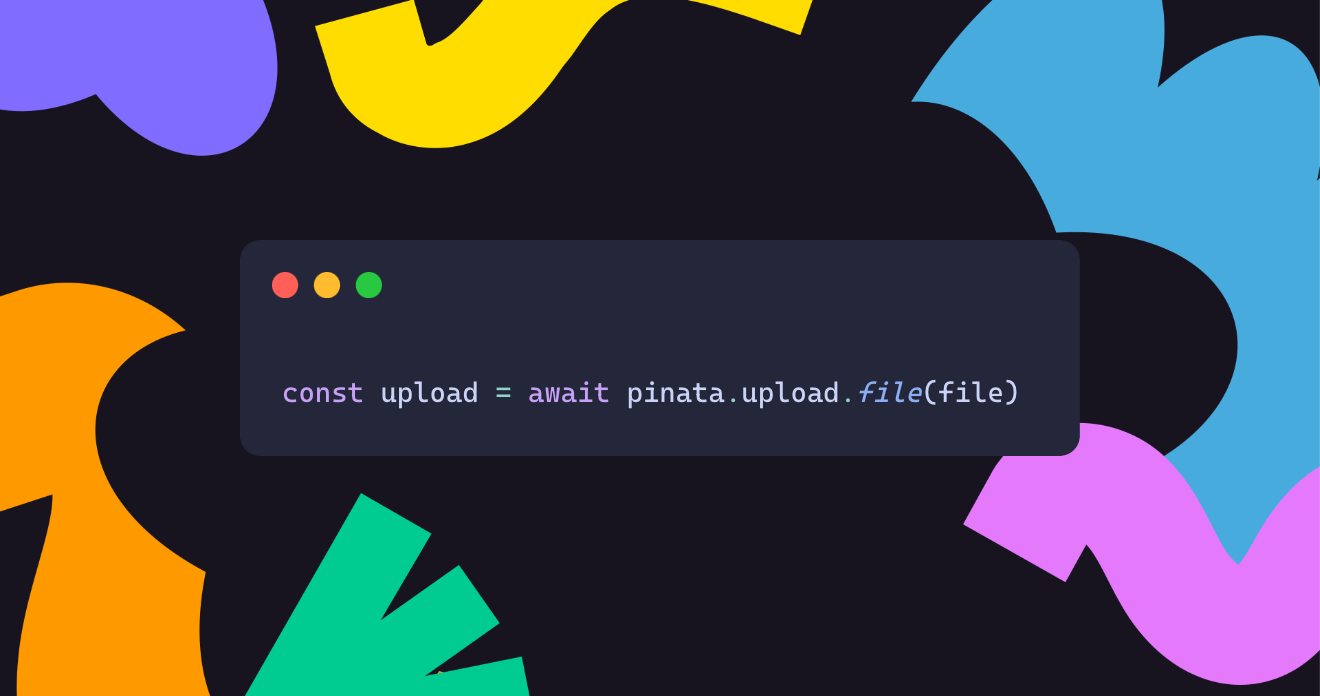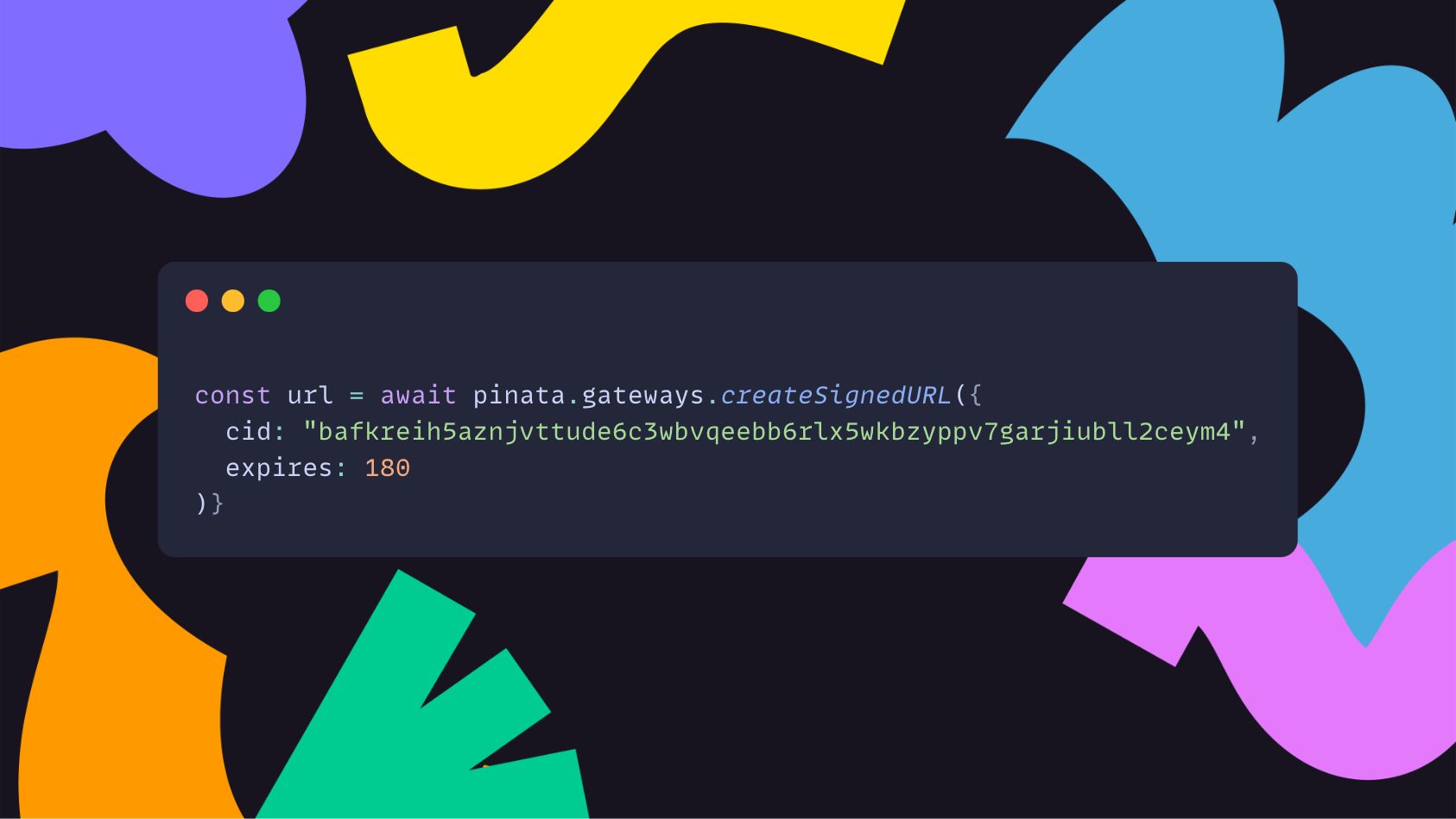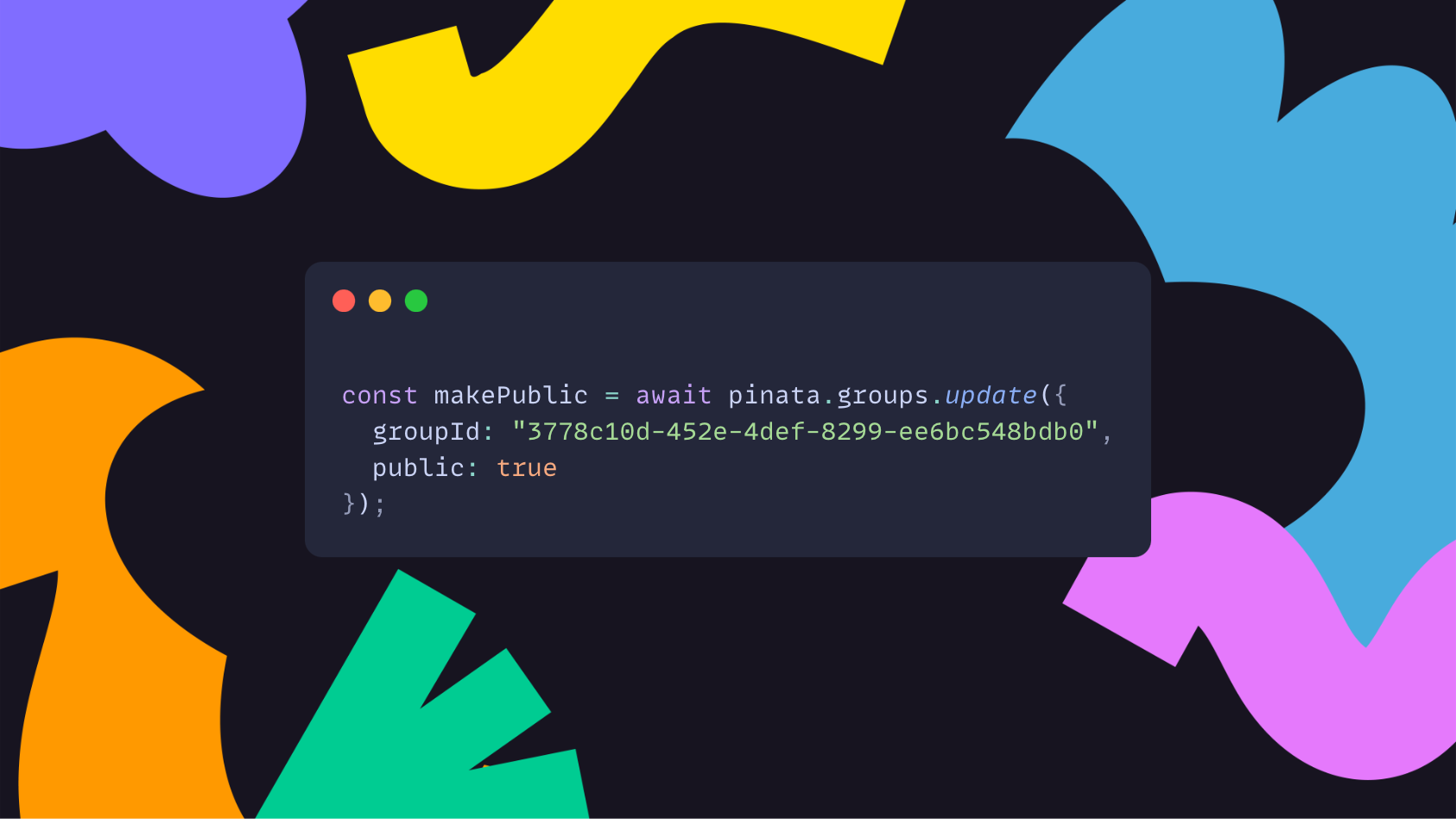Back to blog

File Storage for Blockchains
It’s an undeniable fact that blockchain technology has revolutionized what it means to have decentralized computation. Bitcoin introduced an immutable and cryptographic ledger, enabling an autonomous financial infrastructure. Ethereum took it to another level with the invention of the Ethereum Virtual Machine that can run compiled byte code on a blockchain. Since then, a multitude of other blockchains and scaling methods have emerged, including Layer 2 chains like Base. Despite the popularity and success, all of these chains have one weakness: file storage.
While blockchains are great at keeping a record of immutable transactions and being cryptographically secure, the cost is how much computation it costs to store data onchain. All blockchains use a “gas” mechanism to cover that computation cost, and the more data you try to keep on the ledger, the more it will cost you. Even with ample funding, the success of high storage volume is not guaranteed. This creates a problem for developers that want to build dynamic onchain experiences for consumers. It gets even worse if you try to rely on legacy solutions, like S3, which are proven to be hard to configure and potentially expensive.
Blockchain applications deserve a file storage solution that meets the builders, and Pinata is here to fill that need.
Immutable
One of the biggest traits of blockchain is immutability. The record of transactions cannot be altered, so you have accountability and trust built in. Achieving this with file storage isn’t as simple. Solutions like S3 allow you to completely replace the contents of a file while keeping the same path, which has historically proven to be an issue for onchain assets like NFTs.
With Pinata, not only are your files immutable, they’re also given a cryptographic hash that can be used to verify the contents. Combining the hash of a file with an immutable ledger creates a powerful dynamic. Now, if you think you might find yourself limited and actually need to update a file, Pinata has you covered there too. Our Hot Swaps feature provides an elegant solution by pointing one file to another but keeping the swap transparent, as well as providing a history of the file. For more information check out our post on the feature.
Distributed
Ethereum began the standard of using offchain references to files that were too big to store onchain, and even in the early days there was a need for IPFS. The InterPlanetary File System (IPFS) is a peer-to-peer distributed file network that operates off multiple nodes rather than a single server. Combining this with blockchains provides a great system of persistence, making sure your content is accessible and available no matter what your provider is. It also enables users to “take their ball and go home,” as IPFS’ p2p nature enables anyone to run their own IPFS node and pin or download the content themselves.
If you’ve heard of IPFS, then you also probably have heard how hard it can be to use. Not only that, IPFS has a reputation for being slow and non-performant. Over the past five years, Pinata has solved both of these problems through a complex IPFS infrastructure and lightning fast Dedicated Gateways for file retrievals. Our original goal was to make IPFS simple and easy to use, and we’ve certainly accomplished that. In just one line of code, your files can be on IPFS - no fuss and no hassles.

Private
While IPFS has lots of benefits, one of the big missing pieces is private file uploads. The IPFS network is public, so anyone that has a CID can access that file. This isn’t ideal when you want to gate content or provide private file sharing. Due to this need, Pinata built the Files API, which makes it easy for developers to upload and share public or private files. In just a few lines of code, you can create a temporary URL to provide access to a file.

Not only that, if you wanted to toggle between public or private visibility, just upload them to a Group and update the privacy. No complicated bucket configurations or policies, just one switch.

These features enable some useful onchain applications, like CandyRoad. This app allows users to sell files on Base through Farcaster frames, using direct crypto transfers to grant access. That is the power of Pinata.
Wrapping Up
Whether you need a distributed network like IPFS or a private solution like the Files API, Pinata provides the best developer experience possible. Building onchain is already tricky as it is, and the last headache you need is how to use IPFS or manage your files. Build with Pinata so you can focus on your onchain experiences!

